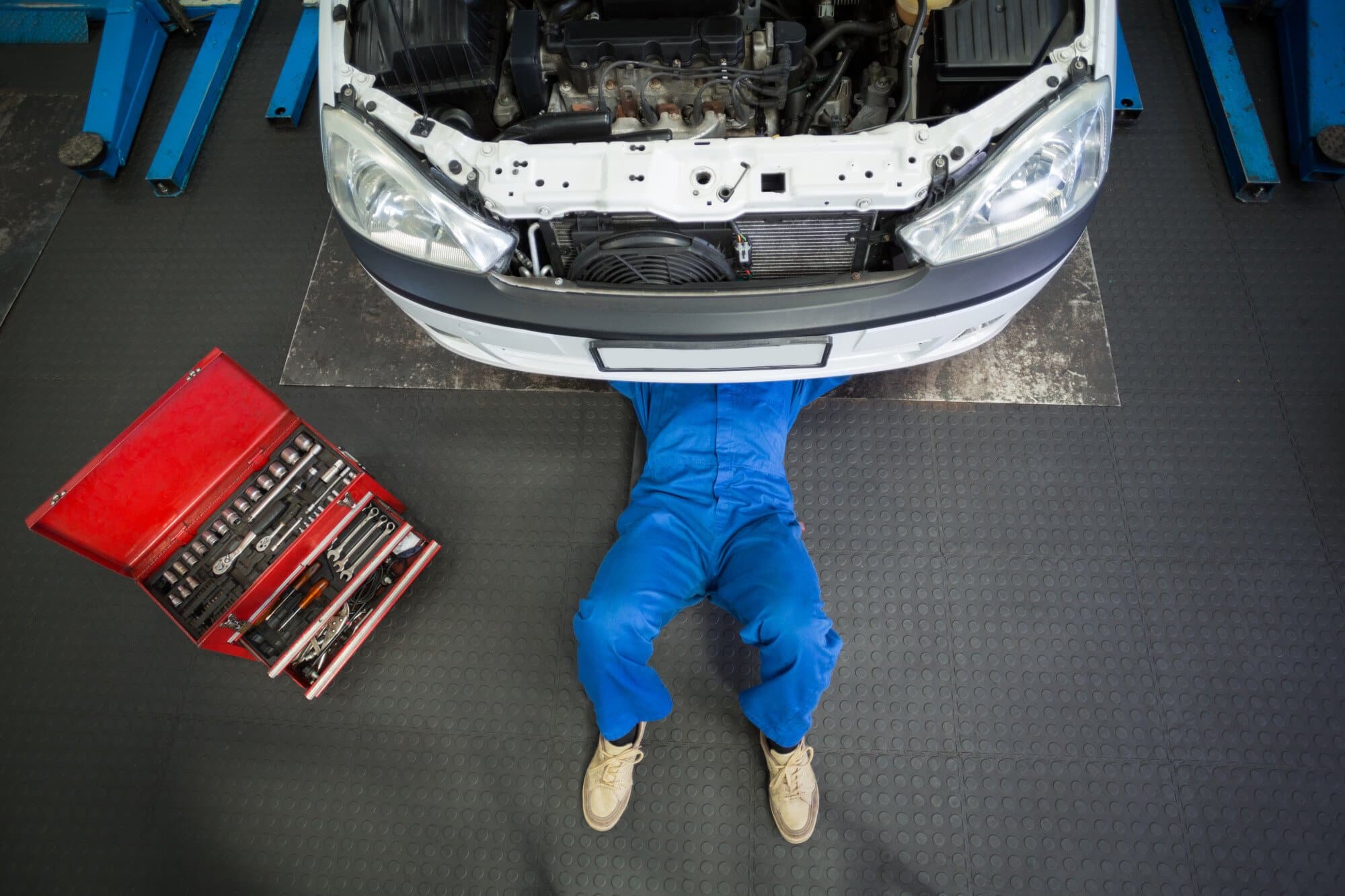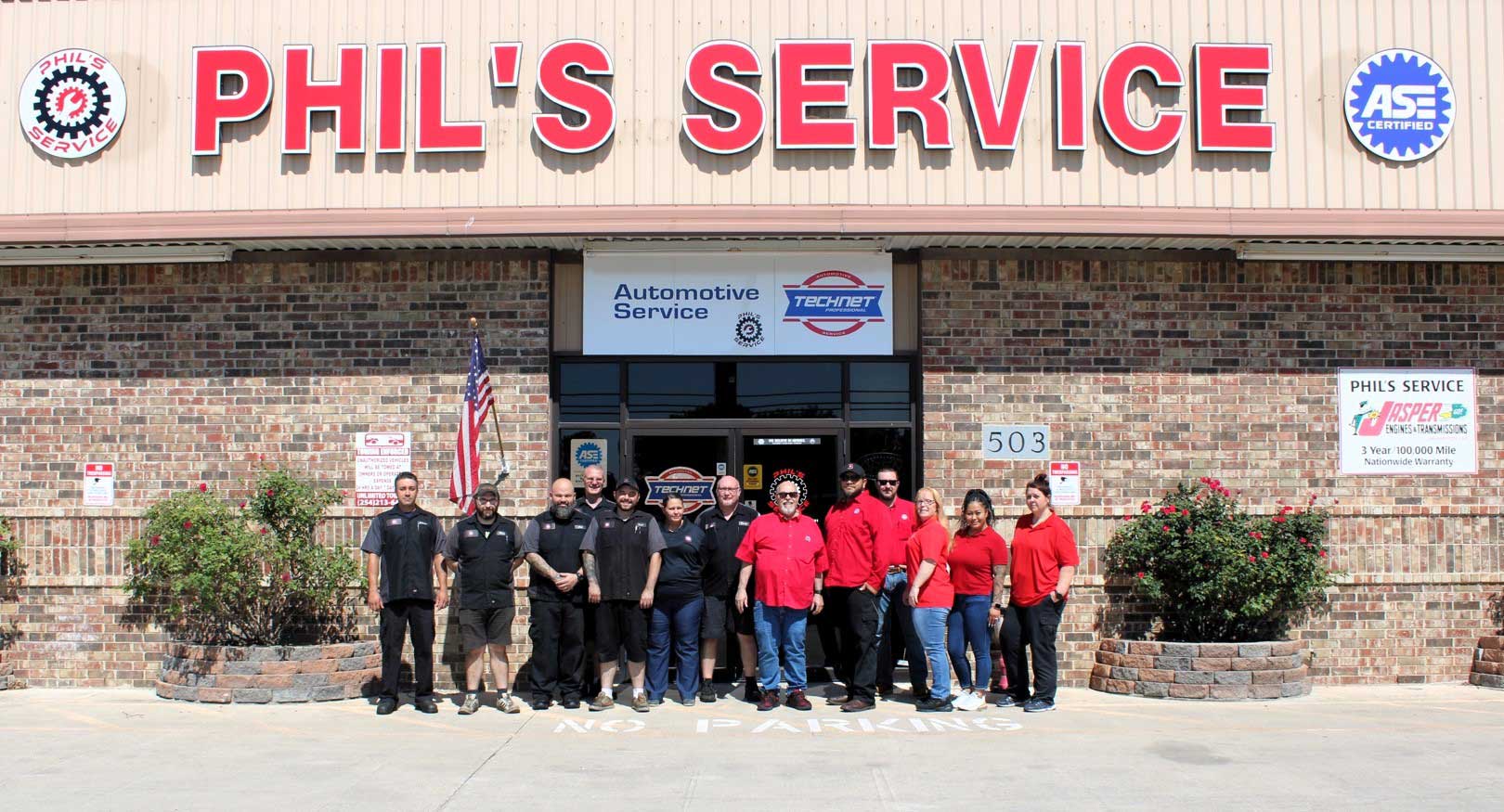You know that feeling of cruising down the highway with your favorite tunes playing, totally in sync with your ride? For some, it is one of the best feelings in the world.
But this smooth experience doesn't just happen by happenstance. It's all thanks to regular car maintenance.
Keeping your car in tip-top shape is like going for regular check-ups at the doctor's office. Just as you wouldn't ignore your own health, you shouldn't neglect your car's either. Among the essential car maintenance services to keep your vehicle humming along nicely is the often-overlooked but super-important oil change.
In this article, we'll dive into why oil changes are crucial, what they involve, and how they can enhance both your engine health and overall car performance. So buckle up and let's get started!
The Heart of Your Car: The Engine
If your car were a living, breathing creature, its engine would be the heart, pumping life into every other part. Just like your heart circulates blood throughout your body, the engine powers your car, making it move and groove.
And guess what? Engine health is a big deal. It directly impacts your car's performance.
If your engine isn't well-maintained, you can't expect your car to deliver its best performance. That's why keeping the engine healthy should be at the top of your car maintenance tips list.
Taking care of the engine is one of the most impactful ways to keep your car running smoothly for years to come.
What Happens During an Oil Change?
Alright, you're convinced that the engine is super important. But what does an oil change have to do with it? Great question!
Let's walk through what happens during this essential car maintenance service.
First, your car is elevated on a lift, giving the mechanic easy access to the underbelly of the vehicle. They'll then drain out the old, dirty oil, which has been working hard to keep your engine's parts moving smoothly.
Next, the oil filter usually gets replaced. This tiny but mighty component catches any particles or debris in the oil, making sure only clean oil circulates through your engine.
Lastly, new, clean oil is poured in. This is essential for top-notch performance. It's one of the simpler car maintenance tips to follow, but its impact on engine health and car performance is huge.
Oil: The Life of the Engine
Imagine oil as the blood flowing through your car's veins. Or in this case, engine components. It has a bunch of jobs, but its main gig is to keep things moving smoothly.
When your engine is running, dozens of parts are moving at high speeds, grinding against each other. Without proper lubrication, these parts would wear out pretty quickly, leading to serious engine problems. And let's be real, nobody wants to deal with that.
Oil also has the vital role of reducing heat. Engines get very hot. Good quality oil helps disperse this heat and prevents your engine from overheating.
Over time, it gets dirty and loses its effectiveness. That's why changing it regularly is a must. Using old or dirty oil is like trying to clean your dishes with muddy water; it just won't work as well.
As oil circulates through your engine, it picks up tiny particles of dirt, metal shavings, and other contaminants. Yes, the very components it's lubricating are the source of its downfall.
As your car ages and accumulates mileage, wear and tear on engine parts is inevitable. Tiny fragments can break off from these components and mix into the oil.
External contaminants can also make their way into the engine, especially if you're driving in dirty conditions.
Benefits of an Oil Change: More Than You Think
We've talked about what oil does and why it needs to be changed. But what are the actual benefits of an oil change? There is actually more to gain than just a smoothly running engine.
Let's take a quick look.
Keeps Your Engine Healthy
Clean oil lubricates the engine's components, reducing wear and tear. This is crucial for maintaining good engine health, which in turn affects your car's performance.
Improves Fuel Efficiency
Believe it or not, changing your oil can actually save you money at the gas pump. How? Cleaner oil reduces friction, which means your engine doesn't have to work as hard. The less hard your engine works, the less fuel it uses.
Extends the Lifespan of Your Car
Replacing engine parts, especially the entire engine, can cost a fortune. Regular oil changes are an investment in the longevity of your vehicle. Consider it a way to avoid more expensive repairs down the line.
Better Emissions
Dirty oil can lead to increased exhaust emissions. Fresh oil helps your engine run cleaner, reducing your carbon footprint.
Smoother, Quieter Ride
Ever notice that strange clanking sound coming from your car? It could very well be due to old, dirty oil. New oil provides better lubrication, making your drive quieter and more enjoyable.
How Often Should You Get an Oil Change?
The best source of information for your specific car is its owner's manual. It'll give you the manufacturer's recommended oil change intervals, which can be anywhere from 3,000 to 10,000 miles, depending on your car's make and model.
Different types of oil have different lifespans. Conventional oil usually needs changing every 3,000 to 5,000 miles.
Synthetic oils, on the other hand, can last up to 10,000 miles. Again, consult your owner's manual for specifics.
Do you often drive in extreme weather conditions? Are you usually stuck in stop-and-go traffic? These factors can shorten the lifespan of your oil, requiring more frequent changes.
Lastly, keep an eye (or ear) out for warning signs. If your engine is making strange noises, or if you notice a decline in car performance, it might be time for an oil change.
Oil Changes: The Cornerstone of Regular Car Maintenance
The next time you think about skipping or delaying that oil change, remember: a little attention now can prevent bigger problems later. Make oil changes an integral part of your regular car maintenance routine, and you'll be cruising smoothly for years to come.
Looking for a reliable spot to get your oil changed? Book an appointment at Phil's Service in Killeen, Texas, where car care is not just a service, it's a passion.
Are you looking for a reliable spot to get your oil changed? Contact our ASE Certified technicians at Phil’s Service and Schedule an appointment today.
You know that feeling of cruising down the highway with your favorite tunes playing, totally in sync with your ride? For some, it is one of the best feelings in the world.
But this smooth experience doesn't just happen by happenstance. It's all thanks to regular car maintenance.
Keeping your car in tip-top shape is like going for regular check-ups at the doctor's office. Just as you wouldn't ignore your own health, you shouldn't neglect your car's either. Among the essential car maintenance services to keep your vehicle humming along nicely is the often-overlooked but super-important oil change.
In this article, we'll dive into why oil changes are crucial, what they involve, and how they can enhance both your engine health and overall car performance. So buckle up and let's get started!
The Heart of Your Car: The Engine
If your car were a living, breathing creature, its engine would be the heart, pumping life into every other part. Just like your heart circulates blood throughout your body, the engine powers your car, making it move and groove.
And guess what? Engine health is a big deal. It directly impacts your car's performance.
If your engine isn't well-maintained, you can't expect your car to deliver its best performance. That's why keeping the engine healthy should be at the top of your car maintenance tips list.
Taking care of the engine is one of the most impactful ways to keep your car running smoothly for years to come.
What Happens During an Oil Change?
Alright, you're convinced that the engine is super important. But what does an oil change have to do with it? Great question!
Let's walk through what happens during this essential car maintenance service.
First, your car is elevated on a lift, giving the mechanic easy access to the underbelly of the vehicle. They'll then drain out the old, dirty oil, which has been working hard to keep your engine's parts moving smoothly.
Next, the oil filter usually gets replaced. This tiny but mighty component catches any particles or debris in the oil, making sure only clean oil circulates through your engine.
Lastly, new, clean oil is poured in. This is essential for top-notch performance. It's one of the simpler car maintenance tips to follow, but its impact on engine health and car performance is huge.
Oil: The Life of the Engine
Imagine oil as the blood flowing through your car's veins. Or in this case, engine components. It has a bunch of jobs, but its main gig is to keep things moving smoothly.
When your engine is running, dozens of parts are moving at high speeds, grinding against each other. Without proper lubrication, these parts would wear out pretty quickly, leading to serious engine problems. And let's be real, nobody wants to deal with that.
Oil also has the vital role of reducing heat. Engines get very hot. Good quality oil helps disperse this heat and prevents your engine from overheating.
Over time, it gets dirty and loses its effectiveness. That's why changing it regularly is a must. Using old or dirty oil is like trying to clean your dishes with muddy water; it just won't work as well.
As oil circulates through your engine, it picks up tiny particles of dirt, metal shavings, and other contaminants. Yes, the very components it's lubricating are the source of its downfall.
As your car ages and accumulates mileage, wear and tear on engine parts is inevitable. Tiny fragments can break off from these components and mix into the oil.
External contaminants can also make their way into the engine, especially if you're driving in dirty conditions.
Benefits of an Oil Change: More Than You Think
We've talked about what oil does and why it needs to be changed. But what are the actual benefits of an oil change? There is actually more to gain than just a smoothly running engine.
Let's take a quick look.
Keeps Your Engine Healthy
Clean oil lubricates the engine's components, reducing wear and tear. This is crucial for maintaining good engine health, which in turn affects your car's performance.
Improves Fuel Efficiency
Believe it or not, changing your oil can actually save you money at the gas pump. How? Cleaner oil reduces friction, which means your engine doesn't have to work as hard. The less hard your engine works, the less fuel it uses.
Extends the Lifespan of Your Car
Replacing engine parts, especially the entire engine, can cost a fortune. Regular oil changes are an investment in the longevity of your vehicle. Consider it a way to avoid more expensive repairs down the line.
Better Emissions
Dirty oil can lead to increased exhaust emissions. Fresh oil helps your engine run cleaner, reducing your carbon footprint.
Smoother, Quieter Ride
Ever notice that strange clanking sound coming from your car? It could very well be due to old, dirty oil. New oil provides better lubrication, making your drive quieter and more enjoyable.
How Often Should You Get an Oil Change?
The best source of information for your specific car is its owner's manual. It'll give you the manufacturer's recommended oil change intervals, which can be anywhere from 3,000 to 10,000 miles, depending on your car's make and model.
Different types of oil have different lifespans. Conventional oil usually needs changing every 3,000 to 5,000 miles.
Synthetic oils, on the other hand, can last up to 10,000 miles. Again, consult your owner's manual for specifics.
Do you often drive in extreme weather conditions? Are you usually stuck in stop-and-go traffic? These factors can shorten the lifespan of your oil, requiring more frequent changes.
Lastly, keep an eye (or ear) out for warning signs. If your engine is making strange noises, or if you notice a decline in car performance, it might be time for an oil change.
Oil Changes: The Cornerstone of Regular Car Maintenance
The next time you think about skipping or delaying that oil change, remember: a little attention now can prevent bigger problems later. Make oil changes an integral part of your regular car maintenance routine, and you'll be cruising smoothly for years to come.
Looking for a reliable spot to get your oil changed? Book an appointment at Phil's Service in Killeen, Texas, where car care is not just a service, it's a passion.



